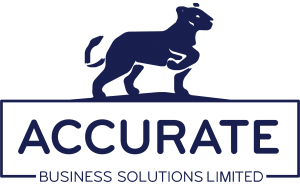Frequently Asked Questions
Clients come to us with all kinds of questions. While we’re always open to answering them, we figured we’d save you a call or email by answering some of the most popular questions right here on our site!
Bookkeeping:
What does a bookkeeper do?
A bookkeeper does a number of things for businesses, including: recording all sales and expenses, preparing payroll, reports for the CRA, reports for WSIB. Bookkeepers also prepare profit and loss statements of a business. Bookkeepers help make internal and external financial decisions and have reports ready for the income tax return at year end.
What is considered a personal expense?
Personal expenses are expenses you paid for from your personal funds that were a business expense or a portion of business use. These expenses can be claimed for your business. Business expenses include, but are not limited to: a portion of your cell phone, a portion of your home expenses for office use, hydro, property tax or rent, natural gas, propane for heat, internet, home phone, home insurance, water bill, interest paid on your mortgage and more.
Personal Taxes:
What is a personal income tax return?
Personal income tax returns need to be prepared by all individuals in Canada. Slips are prepared by your employer, payer, bookkeeper or administrator. You should have received most of your slips and receipts by the end of February. However, T3, and T5013 slips do not have to be sent before the end of March.
What are the Canadian Tax brackets for 2020 in Ontario?
- Up to $48,535: 15%
- $48,536 to $97,069: 20.50%
- $97,070 to $150,473: 26%
- $150,474 to $214,368: 29%
- $214,369 and over: 33%
- Up to $44,740: 5.05%
- $44,741 to $89,482: 9.15%
- $89,483 to $150,000: 11.16%
- $150,001 to $220,000: 12.16%
- $220,001 and over: 13.16%

How do I know if I have to pay taxes?
The basic personal amount for 2020 is $13,229. After this amount, you start paying income tax on your personal income tax return.
How do I file my taxes in Canada?
When are personal taxes due for 2020?
Personal income tax returns must be filled by April 30th, 2021 in order to avoid any penalties. I always advise clients to file on time, even if they do not have the funds to pay the balance owed. It will save them penalties and only interest will be applied to the amount owed. If you do not have the means to pay the full balance, you can call the CRA and discuss a payment plan to pay the debt. You also need to file your income tax return on time in order to continue receiving GST credits, Trillium credits and Child Benefits.
Business Income Tax:
How much can a small business make before paying taxes in Canada?
If your net self-employment income and pensionable employment income is more than $3,500, you will have to contribute to the Canada Pension Plan (CPP). The basic personal amount of $13,229 also applies to your business income from your self-employment, if that is the only income you have during the year.
How is business income tax calculated?
When you are a sole proprietor or have a partnership, your business income tax return is part of your personal income tax return. Your year end for your business is December 31st.
The Canada Revenue Agency allows self-employed individuals to claim a host of expenses provided they are used to generate income and are reasonable,
“Income tax rates for the self-employed individual are the same as personal tax rates for employed workers.” With a small difference, “Someone who owns their own business has deductions that are more than the average wage earner.”
The income earned from self-employment can be from a sole proprietorship or a partnership. If your business is incorporated, it is not considered a self-employment situation.

Client Representation:
What is a client representative?
Client representation is when you give permission to your bookkeeper or accountant to represent you with Canada Revenue Agency or WSIB. This gives permission to your representative to represent you with those departments. Depending on the level you give them, they can call on your behalf and rectify any issues with your personal income tax return, business tax return, business HST, business Payroll or WSIB issues. They can also send documents on your behalf, make payment arrangements. Or represent you during an audit.
How do you represent a client with CRA?
A form must be signed by you and sent to CRA to set up the representation in their system.
Business Mentoring:
How does business mentoring work?
A business mentor can share wisdom with you on an ongoing basis, and in a manner that can have a direct, positive impact on the growth of your business over time. The generic business advice you’ll get from online publications will only go so far, and a good business mentor picks up right where that leaves off. They’ve “been there and done that.”
Perhaps the most obvious benefit of finding a business mentor is that you can learn from their previous mistakes and successes. Your mentor doesn’t need to have experience in your particular industry, though it helps if they do in order to maximize your opportunities to leverage key relationships. They don’t have to be up on the latest trends or technology, you’ve got other sources for that. Your mentor’s role is to share with you lessons from their experience in the hopes that you can learn them quickly and easily.
Why is mentorship important in business?
Mentorship is important for planning. Mentoring also has many other benefits including improved productivity, better relationships, higher rate of engagement, lower rate of turnover, and even increased motivation. Regardless of why you are using mentoring, your efforts won’t be efficient if you aren’t doing it right!
Do I need a business mentor?
Everyone in business needs a mentor because they give you safe, reliable advice. This is one of the most obvious benefits you can get when you get yourself a mentor. A mentor can see your strengths and weaknesses and help you in areas where you need improvement.
Free Consultation
ABS offers a free 1-hour consultation for prospective clients. We want you to feel comfortable knowing we have the expertise and experience to help your business reach its potential.
